- Home
- Linda Byler
Love in Unlikely Places
Love in Unlikely Places Read online
The characters and events in this book are the creation of the author, and any resemblance to actual persons or events is coincidental.
LOVE IN UNLIKELY PLACES
Copyright © 2020 by Linda Byler
All rights reserved. No part of this book may be reproduced in any manner without the express written consent of the publisher, except in the case of brief excerpts in critical reviews or articles. All inquiries should be addressed to Good Books, 307 West 36th Street, 11th Floor, New York, NY 10018.
Good Books books may be purchased in bulk at special discounts for sales promotion, corporate gifts, fund-raising, or educational purposes. Special editions can also be created to specifications. For details, contact the Special Sales Department, Good Books, 307 West 36th Street, 11th Floor, New York, NY 10018 or [email protected].
Good Books is an imprint of Skyhorse Publishing, Inc.®, a Delaware corporation.
Visit our website at www.goodbooks.com.
10 9 8 7 6 5 4 3 2 1
Library of Congress Cataloging-in-Publication Data is available on file.
ISBN: 978-1-68099-601-2
eBook ISBN: 978-1-68099-637-1
Cover design by Koechel Peterson
Printed in the United States of America
TABLE OF CONTENTS
The Story
Glossary
About the Author
CHAPTER 1
SHE SAT AT HER DESK, A WEARY SLUMP TO HER SLIM SHOULDERS, AND brushed back a strand of auburn hair. She stared unseeingly out of the schoolhouse window.
It was over.
It was the last day of her tenth year of teaching school in the one-room schoolhouse nestled in a grove of pines in Hickory Hollow. She had taught there every school year and spent summers working in her father’s produce fields.
But last month she had told the schoolboard no, she would not be teaching the following year. Her announcement was met with groans of protest and the promise of a substantial pay raise. One of the men went so far as to say they could not get along without her, wrapping her efficiently into an itchy blanket of guilt.
But she was sick of teaching school. She’d never understood the term “burnt out,” till now. All her enthusiasm had slowly leaked away in the past year, and though she felt a small sense of relief in having given her resignation, that was no match for the guilt and indecision that now plagued her. Not only had she disappointed the school board and her students, but she had no clear idea of what she was to do next.
At twenty-six years of age, she had to accept that she may be single for the rest of her life. The best ten years for being chosen by a suitable man were already in the past. The hope of getting to be a wife and mother, every young Amish woman’s dream, was quickly evaporating into a dense fog that hung over her whole existence.
“Mysterious,” they called her. You couldn’t figure out Emma Beiler’s intentions. She’d had plenty of chances, more than a few nervous young men asking if she’d begin a friendship with them. “Picky,” the women said to each other at quilting parties that Emma didn’t attend. She was too picky. She read too many romance novels, building up expectations as high as the clouds and as untrustworthy as sunshine on a March morning.
Emma leaned back in her chair, propped her feet on an open drawer, surveyed the bare walls of her classroom, and sighed. She supposed she’d spend the summer as she always had, the work in the fields interspersed with housework, laundry, and yard and garden maintenance. She had always enjoyed working in the produce fields, the sun hot on her back, her body young and strong and capable, her father’s praise and her siblings’ camaraderie satisfying and familiar.
But now she wanted more. Something different. She wondered if that made her greedy, selfish. She had always been taught to be content with what she had, to be grateful and not complain.
She leaned forward, her feet hitting the floor with a dull thump that echoed through the empty classroom. Reaching out, she gathered a pile of artwork with blue sticky tack marks on every corner and absentmindedly riffled through them.
Here was Ida’s horse, done all in pencil. She was a serious budding artist at ten years of age. The girl was gifted, for sure, but what was the use in furthering her education? She’d never be an artist, in a real sense. After eighth grade she’d attend vocational class, then go through rumschpringa, and then, if God wills, she’d become a wife and mother. Oh, she’d draw a horse for her children, and they’d be amazed at her ability, clamor around her and beg for more. If she’s lucky, her husband would admire her skill. But she’d never receive professional art training, never exhibit her artwork, sell it to wealthy couples to hang on their walls. Perhaps it was a blessing that Ida didn’t know how good she was, that she had the talent to go far. She didn’t need to know what she was missing out on.
Emma sighed again, then gathered up the artwork and shoved it into a folder, snapped it shut decidedly, and got to her feet.
It was over, she assured herself for the hundredth time.
She had to be firm with the men on the schoolboard, firm with herself and her long awaited decision. She needed a change. It felt like her life depended on it as much as it depended on the ability to breathe.
But she was crying as she turned the key in the lock for the last time. She wept for the bygone days when her youthful innocence had carried her along on waves of enthusiasm, met challenges like a warrior, knocking down hurdles with the sword of her calling. She’d been convinced she would grow old in the classroom, the intensity of her days never waning.
She picked up a plastic tote stuffed with papers and books and carried it down the steps to the waiting horse and carriage. The white horse shed stood in stark contrast to the dark of the pine woods. The blue skies of May were a lovely benediction that lent beautiful color to the scene.
Hickory Hollow School, smack in the middle of a pine woods; the irony of it always made her smile.
“Whoa, Trixie. Hold still now.”
Trixie began prancing the minute he heard her walk toward the carriage, the blinders on her bridle preventing a good look until she turned her head, as if to remind Emma she’d been taking too long, leaving her tied at the hitching rail.
She lifted the hatch on the back, tilted the seat, and placed the tote inside, then returned for more items that had accumulated over the years. She had packed them all into plastic totes that were organized, labeled, and ready to be stored in the attic of the farmhouse at home.
She untied Trixie, fastened the rein to the hook on top, and gathered the driving reins. Then she hopped into the buggy and drew back steadily, watching carefully as Trixie leaned into the leather britchment, backing the carriage away from the hitching rack, turning to the left before tugging eagerly on the bit.
Leaning forward, Emma pulled back on the reins and watched for traffic both ways before allowing Trixie to begin her easy trot on to the macadam road. The last ride home from school brought a fresh wave of emotion that caught her unprepared as the warm breeze wafted through the open window.
Was she ready to embrace change?
She didn’t know, so she allowed the tears to course down her tanned, lightly freckled cheeks until she sniffed, blew her nose on a crumpled Kleenex she extracted from the small door built into the oak dash, and took a deep cleansing breath. She inhaled the scent of new growth, moist earth, and huge deciduous trees that flanked the road on either side.
The countryside was sparsely populated, the woods and fields of Crawford County, Pennsylvania, only dotted occasionally with small homes, lots containing mobile homes with older cars and muddy pickup trucks parked in gravel driveways. The Amish had moved into the area in the nineties and established productive farms by building
new dairy barns and applying the traditional work ethic taught by their forefathers. When milk prices fell, they added workshops or dog kennels, making ends meet by other methods of profit, and as the years went by, the farms prospered, the fields producing bumper crops of corn and hay, vegetables and soybeans.
They tilled the soil with six horse hitches, keeping the old ways as much as possible and living their lives according to each man’s conscience and ability. The small tight-knit community flourished in time, with six different church districts that neatly kept twenty to thirty families in each one, a distance of twenty-five miles containing these designated districts in smaller groups living in a five or six mile radius.
The Crawford County settlement was known as a place to purchase farms well below the exorbitant fee paid in Lancaster County, but there was always the consideration of taking wives away from parents, friends, and siblings. Without their own vehicles, the cost of traveling to and from the homes in Lancaster was considerable, and had to be taken into account.
Emma had been four years old when her parents decided to strike out and help build the budding community, so this was her home. She had only faint memories of her first home in Lancaster and had no reason to want to return the way her mother used to. The oldest in the family, Emma could remember the times her mother cried discreet tears of homesickness that never failed to strike a numbing fear in her little girl’s heart. It was especially hard on her mam when there was a new baby, of which there were nine.
Now, two of Emma’s sisters had already married and gone off to establish homes of their own with young ambitious husbands. Sam King had started his courtship of her sister Esther when she was barely sixteen years old. He swept her straight off her feet and carried her along on the proverbial whirlwind until she was married with stars in her eyes and a smile that stretched across the width of her face and then some.
It was the story of Emma’s life. Though she kept it quiet, she had felt drawn to Sam King the day she met him and hoped he might ask her for a buggy ride. But he hadn’t, and instead snatched up her younger sister the moment she entered rumschpringa. But that’s how it went. The young men that actually intrigued Emma were the ones who showed interest in someone else. Someone like her sister—quiet, sweet, and without a creditable opinion in her pretty head.
Ruth was a carbon copy of Esther, although she had a few flings with guys who didn’t qualify, in Emma’s opinion. Ruth was eighteen by the time Emanuel Lapp asked her to go skating one Friday night in January. He twirled and looped his way into her heart with his acrobatic stunts, his gray beanie making him look like a sea turtle with big light brown eyes framed by heavy lashes and roofed by his black unibrow. He was quite dashing, though, and looked the part of a handsome groom on his wedding day, his jet black hair contrasting his snowy white shirt, his black bow tie crisp and straight. It was a perfect wedding. The bouquet of red roses with the wedding gifts was immense and her mother’s mouth had loosened as she struggled with her emotions, sniffed, and gave up to extract a lacy handkerchief to blow her nose, in the end.
Emma was happy for Ruth. Those sea turtle eyes didn’t appeal to Emma, but she was glad Ruth had accepted him, and they got along swimmingly. No pun intended, of course.
Sam King was another story altogether. He’d returned from Alaska, blown in from the north one winter day to stay with his brother and his brother’s wife before going home to Lancaster County. Tall, husky, with rugged good looks and an “English” haircut, a nonchalant, loose-limbed walk, and eyes that were far too experienced and intelligent for an Amish youth. Emma felt the first flutter of attraction within seconds and was quickly blown away by the cruel attack of love. She endured that weekend caught firmly in a grip that rendered her ecstatic one moment and miserable the next. When he left for Lancaster she spent an absentminded week in school hoping he’d return.
And he did return, two weeks later.
The hymn singing on that Sunday evening was still excruciating to think about. She had tried hard, through the years, to place a mental block so she didn’t have to think about it.
Why now?
Why did her own thoughts assault her so suddenly in the middle of a bright May morning with the sound of gaily trotting hooves and the crunch of steel wheels on macadam lending wings to her spirit after the goodbye to her schoolhouse?
He was her brother-in-law. Her sister’s husband. The pain had long diminished, melted away by the heat of her fiery pride and resolve.
But he had noticed her first. He had smiled his slow, easy smile in his lopsided manner, his eyes kindled by the fire in hers. It had been there, whatever it was. She’d been dressed in her lime-green dress, the one that brought out the green in her eyes, produced lights from the waves in her auburn hair. She knew her own attraction. Knew it well, in fact. Confident, unashamed, they both barely sang a chorus, but carried on a full-fledged flirtation that would have been shameful by her mother’s standards. She had picked a strategic point to be caught easily, and he found her. He leaned up against the wall of the barn and asked her questions, laughed with her.
Finally, after four years of rumschpringa, she had found her prince. Alaska! What adventure. What daring it took to break away from the traditions expected of him. They would return after they were married. She saw their lives together unfolding in her mind’s eye—they would travel, explore, share ideas, fill their days with laughter and intellectual discussions.
When he brought the conversation to a close and wandered off, she felt the smile slide from her face, shivered as the loss extinguished the flame. It was far too long before she found him, deep in conversation with her sister.
He never left Esther’s side, and she never left his.
They were married after barely a year. Her mother muttered something about the cradle being robbed, but gamely sewed wedding clothes, hosted quilting bees to finish off the three quilts, and filled the cedar hope chest with bed sheets, towels, and table linens.
And Emma was part of the bridal party, seated with his distant cousin who was dull, overweight, and dating a girl from Bowmansville.
Over time, Emma’s heart was mended by a growing patchwork of bitterness that clouded her view of any other potential suitor. She threw all her energy into her school, the merciful days spent in the company of innocent children and the monumental task of instilling wisdom into their bright heads. The years accumulated, and to her surprise, Sam evolved into nothing more than a brother-in-law, one who held no romantic intrigue, so thoroughly was he devoted to her sister Esther. She spent countless weekends at their house playing card games, sleeping in the guest room, making breakfast, caring for their first newborn baby when he arrived.
They remained close, Esther and she. They shared everything, poured out the contents of their hearts for each other’s examination, analyzed every given situation before giving it back. And for this, Emma was glad.
Ruth tried her hand at finding a husband for Emma, but was always met with the same flap of dismissal from Emma’s slender fingers.
“No, not him. He’s much too young. How could I ever think of marrying someone five years younger?”
Every eligible male was too young, too old, too stupid, or too whatever else in Emma’s mind. Her sisters gave up, deciding perhaps she was being called to a life of singleness after all.
When Emma reached Rocky Road she tugged lightly on the right rein and applied the brakes for the descent down the winding road across Pebble Ride. Her home was situated just below this picturesque hill in a wide valley called Williams Valley, named after William Penn, the founder of Pennsylvania. At least it made more sense than naming a school Hickory Hollow in a stand of pine trees.
The house was covered in gray siding, and the porch pillars were white, as was the wide trim encasing the windows. It was a remodeled farmhouse, squat and wide and two storied, with the usual array of flowers and shrubs, trees, and a newly tilled garden that showed thin lines of freshly planted onions, carrots, ra
dishes, and peas. The barn was red, and appeared as scenic as a photograph on the calendars at the local feed mill. Squares of white board fence separated the barnyard and horse pasture from the domain of the black and white Holsteins, those pedigreed milk producers whose tongues slashed at the heavy new growth in the sloping pastures that led to the base of the ridge.
Hmm, Emma thought, seeing two buggies parked by the implement shed. Esther and Ruth?
It was midmorning, and she was starved. She was thinking of yeast rolls and bacon with scrambled eggs. Maybe biscuits and sausage gravy.
As Trixie drew the carriage past the house, the door was flung open and an arm flapped in her direction. Ruth cupped her hands around her mouth and called out, but Emma could not comprehend a word, so she waved back and hurried to unhitch, water, and feed her horse before carrying the first tote into the side door, where she dropped it onto the washhouse floor.
“Hey Emma! Need help?”
“You can. I have two more.”
Both sisters appeared at the door, smiles on their pretty faces, dressed in blue and green with black bib aprons and neat heart-shaped white coverings.
They slid their feet into someone’s Crocs and hurried after her, catching her shoulder, saying, “How are you? Haven’t seen you in some time. Vie bisht?”
Emma laughed. “Fine. I’m fine. Last day of the last year of school teaching. I am so done with it.”
“Are you serious? Is this for real?”
Esther’s dark eyes were filled with concern, the genuine caring she always displayed for her older sister.
“Yes. I am serious. I’m not going back.”
Ruth reached for a tote, yanked, and groaned.
“What do you have in here?”
“Stuff. Ten years of stuff.”
“Ten years, Emma? Are you really twenty-six?”
“I am Crawford County’s first old maid. Singleton. Single lady, right here.”
Her sisters’ laughs rang into the clear bright morning and Emma felt a weight lifting from her shoulders. Everything would work out, one way or another.

 A Second Chance
A Second Chance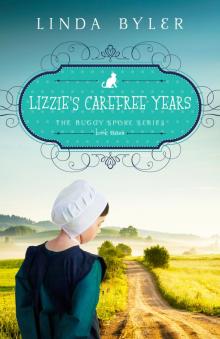 Lizzie's Carefree Years
Lizzie's Carefree Years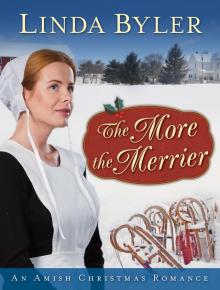 The More the Merrier
The More the Merrier Love in Unlikely Places
Love in Unlikely Places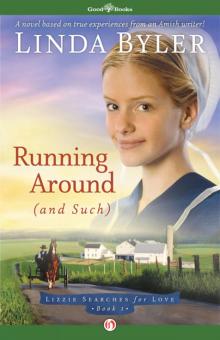 Running Around (and Such)
Running Around (and Such) Wild Horses
Wild Horses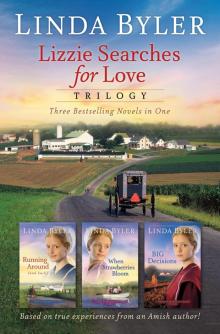 Lizzie Searches for Love Trilogy
Lizzie Searches for Love Trilogy Lizzie and Emma
Lizzie and Emma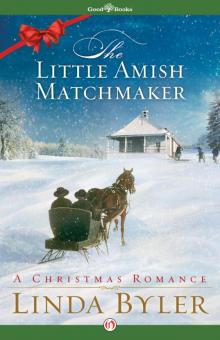 Little Amish Matchmaker
Little Amish Matchmaker The Witnesses
The Witnesses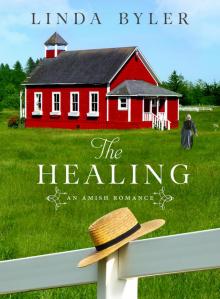 The Healing
The Healing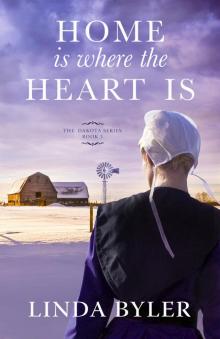 Home Is Where the Heart Is
Home Is Where the Heart Is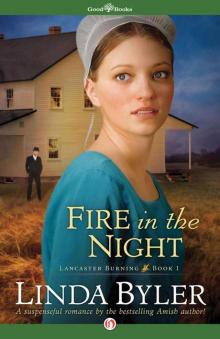 Fire in the Night
Fire in the Night When Strawberries Bloom
When Strawberries Bloom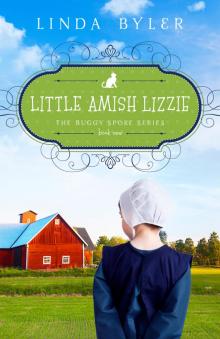 Little Amish Lizzie
Little Amish Lizzie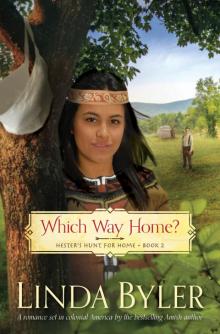 Which Way Home?
Which Way Home?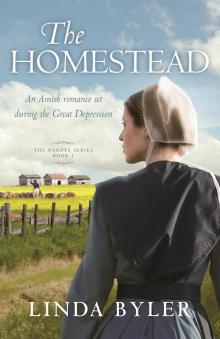 The Homestead
The Homestead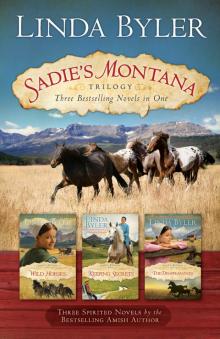 Sadie’s Montana Trilogy
Sadie’s Montana Trilogy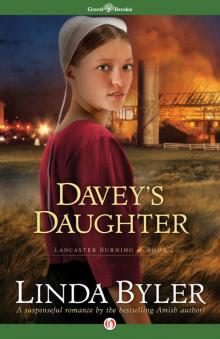 Davey's Daughter
Davey's Daughter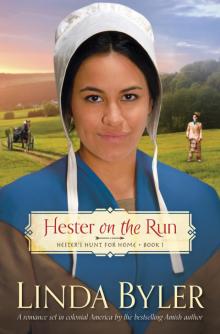 Hester on the Run
Hester on the Run Disappearances
Disappearances Big Decisions
Big Decisions Becky Meets Her Match
Becky Meets Her Match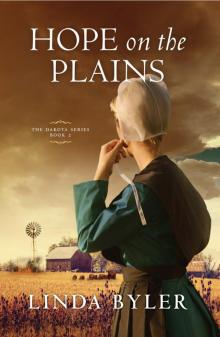 Hope on the Plains
Hope on the Plains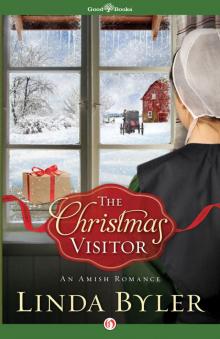 Christmas Visitor
Christmas Visitor